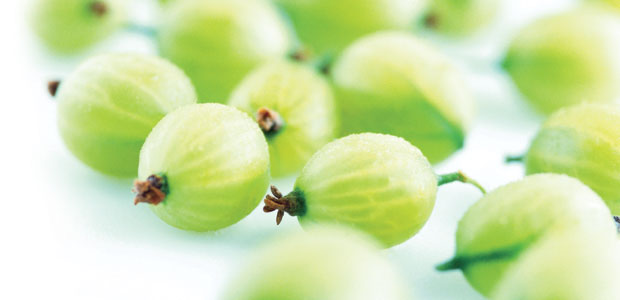Advertisement
Phytoestrogens for Menopausal Symptoms
While many women pass through menopause experiencing only the termination of menses, others experience symptoms lasting months to years. Many hormones change during this phase of life, each complete with its own signs and symptoms. Successful treatment of these symptoms may be achieved with foods and herbal medicines that contain phyto-estrogens. These chemical constituents found … Continued

While many women pass through menopause experiencing only the termination of menses, others experience symptoms lasting months to years. Many hormones change during this phase of life, each complete with its own signs and symptoms.
Successful treatment of these symptoms may be achieved with foods and herbal medicines that contain phyto-estrogens. These chemical constituents found in plants are structurally similar to estrogen, although weaker in action, and have been used historically for their hormone-like effects.
The Right Phytoestrogen
Initially it is best to address menopausal concerns with a diet high in phytoestrogenic foods such as soy products (not more than one serving per day), flaxseeds, alfalfa, beans and lentils, apples, carrots, wheat germ, pomegranates, rice bran, berries, oats, and barley. Plain organic yogourt or acidophilus supplements should also be consumed daily to provide the beneficial bacteria essential for healthy estrogen metabolism in the digestive tract.
If your symptoms are not resolved with diet, your next option is herbal medicines, used alone or in combination–and with the guidance of a health care provider. These herbs are available at health food stores and should be purchased in standardized form. Take them on an empty stomach for maximum effectiveness.
Phytoestrogens can provide relief from symptoms of changing estrogen levels at menopause–but menopause is not only about estrogen. Other hormones, including progesterone and testosterone, also change, causing signs and symptoms a specialist will recognize. Depending on your menopausal picture, additional herbal medicines with hormone-influencing qualities can be used in conjunction with phytoestrogens to allow safe and effective menopausal support with minimal risk of future health concerns.
Some Signs and Symptoms of Estrogen Decline
- hot flashes
- night sweats
- urinary urgency and frequency
- insomnia
- depression
- failing memory (especially when attempting to think of a word or name)
- hair-texture and skin-elasticity changes
- thickening waistline
- vaginal dryness
- a missing mojo (reduced libido)
Phytoestrogenic Herbs
Red clover (Trifolium pratense) Clover extract at a dose of 160 mg isoflavones/day produces beneficial effects and cancer-protective qualities.
Licorice (Glycyrrhiza glabra) supports the immune system. It is useful in menopause if chronic stress is an issue because it influences adrenal gland function and cortisol levels. Licorice may be taken alone at a dose of 200 mg two to three times daily. Individuals with high blood pressure should not take supplements containing licorice.
Dong quai (Angelica sinensis) may be of assistance with hot flashes and vaginal dryness, especially when used in combination with black cohosh and chasteberry. Typical dose is 400 to 800 mg/day in capsule form or 1/4 to 1/2 tsp liquid extract three times a day.
Hops (Humulus lupulus) This herb possesses sleep-enhancing effects. It has been found to improve hot flashes, anxiety, and sleep problems associated with menopause.
Black cohosh (Cimicifuga racemosa) Although marketed as a herb for menopause, it does not contain phytoestrogens. However, several studies, including one published in The Journal of Women’s Health (September 2005), have reported it provides safe and effective relief of hot flashes and possible mood disorders associated with menopause. Take 200 mg twice daily.




